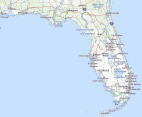Seminole-Funded PAC Wants Florida to Stop Petition Signature Review
[ad_1]
Posted on: January 12, 2022, 07:05h.
Last updated on: January 12, 2022, 07:05h.
A political action committee (PAC) supported by the Seminole Tribe of Florida is asking a judge in that state to stop the certification of signatures for a proposed expanded gaming measure that it claims were gathered illegally.

Standing Up for Florida and Pradeep “Rick” Asani, the group’s president, filed a countersuit in Leon County Monday in response to a case filed last month against them by a rival PAC. In the initial suit, Florida Voters in Charge (FVC) claimed Standing Up for Florida harassed its workers as they gathered signatures for a petition to put a question on the November 2022 ballot to legalize casino gaming in the northern part of the state.
FVC has received nearly $49.6 million in funding from Las Vegas Sands Corp., according to the Florida Department of State Division of Elections. That includes $22.5 million in contributions made in December.
Standing Up for Florida has received more than $10 million from the Seminole Tribe, state election finance records indicate.
In the countersuit, Standing Up for Florida claims FVC hired Game Day Strategies (GDS) to manage the signature collection process. Companies hired to circulate petitions have used “fraudulent, deceitful, and illegal” practices. That includes paying petition workers based on signatures collected, which is against state law, instead of hours worked.
In one instance, the countersuit claims one collector, Matthew Leeks, submitted a turn-in sheet, but it was adjusted “because he did not bring in enough signatures” for the 10 hours he claimed. Instead, it was adjusted to 5.75 hours to match the 23 signatures he collected. A photo of the timesheet includes a sticky note indicating the reduced hours based on the signatures gathered.
FVC has submitted more than 400,000 signatures that elections officials have verified, the suit states.
All these petitions from the illegal payment scheme instituted by GDS were obtained illegally… and may not be certified in an effort to change Florida’s Constitution,” the countersuit states.
To be placed on the ballot, election officials must verify 891,589 signatures by Feb. 1.
Suit Claims Petitions Were Destroyed
Besides making pay-per-signature claims, Standing Up for Florida alleges Grassfire, one of the companies hired to collect signatures for the FVC measure, purposefully destroyed petitions, which also violates state law. According to the countersuit, Grassfire told a staffing firm it contracted with to hire petition circulators and managers to shred thousands of signed petitions if they were not complete or legible or if the signature was potentially fraudulent.
Florida law mandates that all petitions be submitted for review.
The suit claims Tina Frazier, a former manager, for Grassfire is a “whistleblower” and has reported the shredding allegations to state law enforcement.
“Ms. Frazier is personally aware that Grassfire has destroyed thousands of petitions that Grassfire thought would be rejected by Supervisors around the state,” Standing Up for Florida claims.
The owner of one staffing company contracted refused to abide by Grassfire’s demand, according to the countersuit. He submitted the questionable petitions to elections officials.
Grassfire and other contractors hired by FVC were required to maintain a 70 percent validity rate for signatures, the countersuit states. That gave Grassfire the incentive to destroy petitions. Standing Up for Florida also claims FVC saved on verification costs, which are a revenue source for county elections supervisors.
These companies only care about gathering signatures, no matter what it takes,” the complaint states. “When employees do not meet Grassfire’s demands to meet a certain signature quota, Grassfire has docked their pay, refused to cover the agreed-upon per diem for lunch, and evicted at least one employee from the hotel where she was staying. One former Grassfire manager reports that she received death threats from her team members when Grassfire refused to pay for their worked hours because of a lack of signatures.”
The suit also alleges petition gatherers were also denied per diem meal costs and that organizers ordered “unregistered employees” to serve as “registered circulators.” Organizers also put out-of-state workers in substandard housing.
Messages to attorneys representing the counter-defendants were not immediately returned.
As part of the countersuit, Standing Up for Florida also filed a motion for a temporary injunction that would keep the Secretary of State and the Leon County Supervisor of Elections from certifying the signatures.
One of Two Commercial Gaming Measures Proposed in Florida
FVC is one of two PACs backed by commercial gaming interests that is circulating petitions to get a question on the November 2022 ballot. The other would legalize sports betting statewide and is backed by DraftKings and FanDuel. It also must have 891,589 signatures verified by elections officials by Feb. 1.
The Seminole Tribe also opposes that measure.
Last year, the Seminole Tribe reached an agreement with Florida Gov. Ron DeSantis on an amended gaming compact that allowed it to offer dice-based table games and roulette and receive exclusive statewide rights to sports betting. The agreement, which was to provide the state $2.5 billion over the first five years, included both retail and mobile sports betting.
The compact was the target of a federal lawsuit two Florida-based parimutuel operators filed against the US Department of the Interior. The operators claimed the compact violated federal Indian gaming laws by allowing gaming to take place off tribal lands.
Seminole Gaming launched its mobile app, Hard Rock Sportsbook, on Nov. 1 as the case was still pending in a District of Columbia federal court. Later that same month, US District Judge Dabney Friedrich ruled the compact did violate federal law and nullified the entire agreement.
Seminole leaders suspended operations of the Hard Rock sportsbook in Florida after being denied a stay on the order in a federal appeals court. The tribe, though, has appealed Friedrich’s order and that case is still pending.
[ad_2]
Source link
